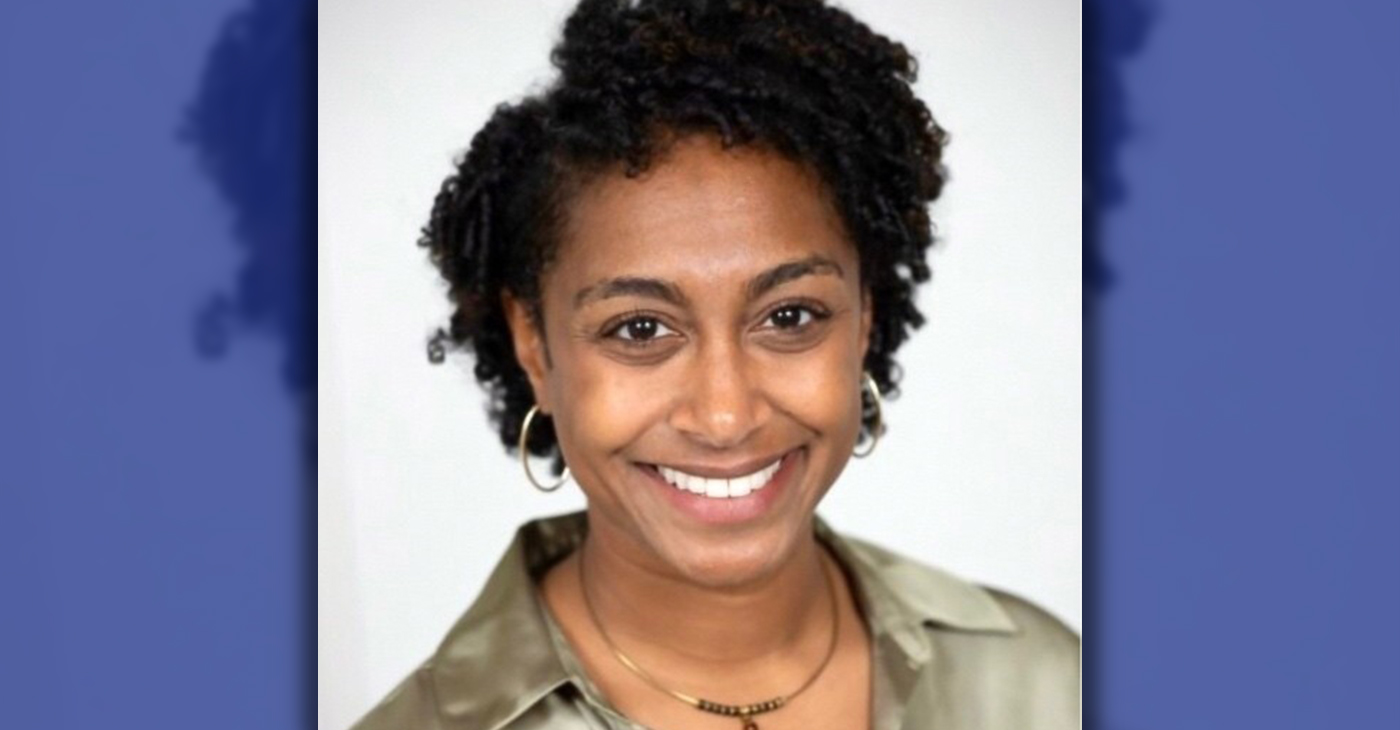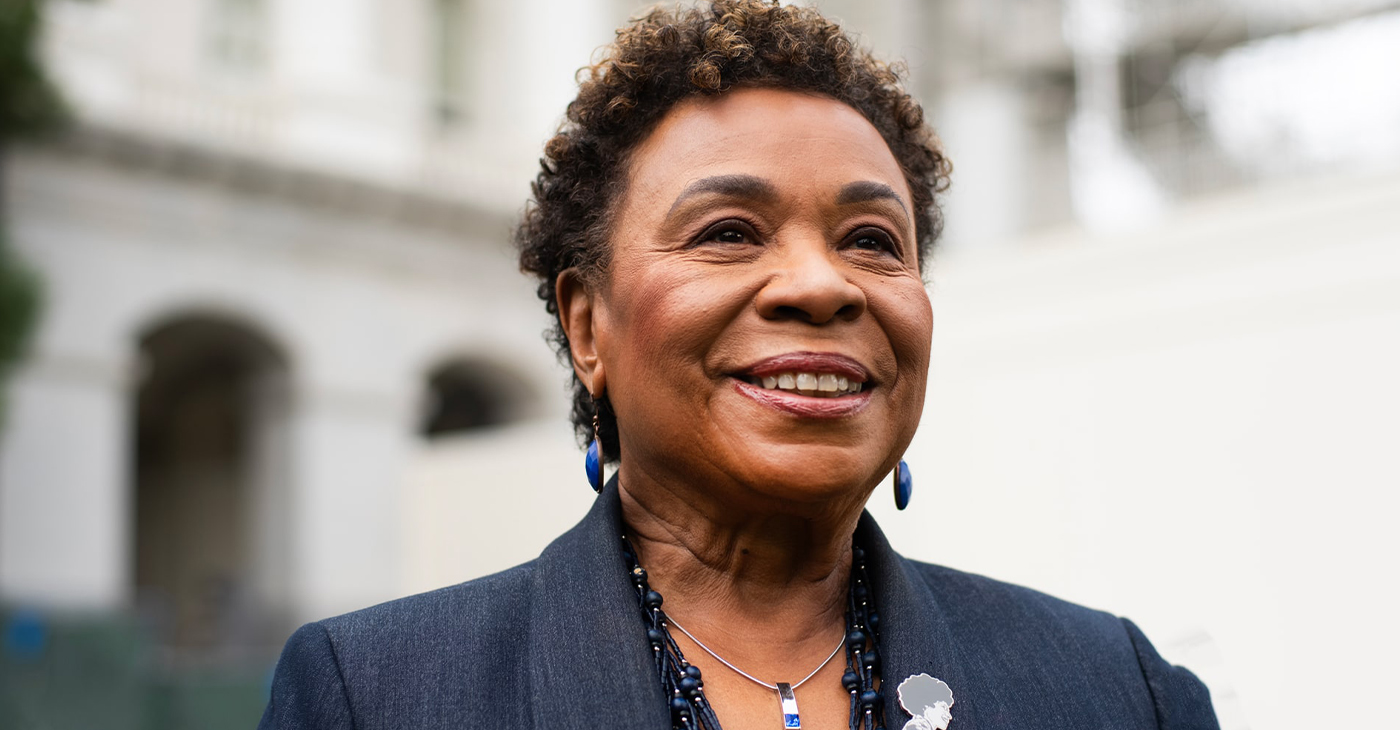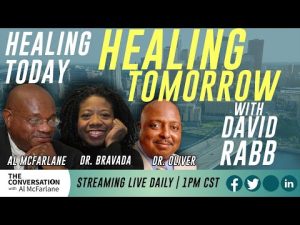Bay Area
After Two Years, Wood Street Safe Parking Site Opens
The struggle to open the site began in the summer of 2019 when Oakland’s Mayor Libby Schaaf announced plans for the city to sanction the opening of a safe parking site near Wood Street, saying the site would open “in the coming months,” but the project soon faced delays.

On July 7, the Berkeley based non-profit Building Opportunities for Self-Sufficiency (BOSS) opened a site, sanctioned by The City of Oakland, for people to legally park and reside in RVs or trailers while having access to electrical hookups, fresh drinking water, and portable toilets.
It sits just west of Wood Street in West Oakland and in the middle of a large community of homeless people. The site had been planned since 2019 but took over two years to open in part due to protests and an occupation.
As of Tuesday, people living in six RVs and one trailer have moved into the site. Some homeless residents who live nearby have shared concerns about their ability to access the site, skepticism that it would meet their needs, and worries that it could displace those in their community who are not able or interested in moving to the site. City of Oakland Public Information Officer Autumn King said the site could accommodate 40 total RVs or trailers.
The struggle to open the site began in the summer of 2019 when Oakland’s Mayor Libby Schaaf announced plans for the city to sanction the opening of a safe parking site near Wood Street, saying the site would open “in the coming months,” but the project soon faced delays.
In early November of that year, Oakland oversaw a two-day clearance of a 1.5-acre parcel of land just west of Wood Street in order to make the land available for a non-profit to open the site. City workers and a contracted towing company removed vehicles, both inhabited and abandoned, from the parcel along with possessions and trash. Oakland’s Police Department also asked people to leave the property with their possessions, but faced resistance from a group of over 35 protestors.
During that year the handful of residents remained on the parcel, and the safe parking site was not constructed. In July of 2020, released e-mails between members of Oakland’s City Administration, City Council, and Game Changer’s lawyer, Patricia Smith, showed the company planned to lease the land to the city for $1 a year to allow a non-profit to use it for a safe parking site.
A proposed lease in an e-mail Oakland’s City Administration sent to Smith led some to believe, increasingly, that the site’s construction could displace residents. The lease quoted The City of Oakland Geographic Emergency Shelter Intervention Policy and stated that one goal for such a parking site is “alleviating the impacts encampments have on the surrounding community.”
It also stated that when such sites open “the city determines an area surrounding the site that is considered an invitation zone,” where those living nearby are invited to participate, but that once the site fills up “the invitation zone becomes the closure zone and enforcement is used to remove or prevent the return of any encampment in that area.”
The parcel for the proposed parking site sits in the middle of a community of homeless residents who live on land owned by Oakland or CalTrans. While no one knows exactly how many people live there, and the population often changes, recent articles in The SFChronicle and The Guardian suggested the population to be in the hundreds. While residents and supporters worried that many members of this population who could not access or were not interested in accessing a safe parking site would be evicted from the area, it was also unclear what would happen to residents living on site after the lease ended. In an interview from November 2020, Smith stated Game Changer planned to develop the land within two or three years.
In November 2020, about 60 advocates and residents showed up to protest Alameda County Sheriffs evicting the handful of people who still remained on Game Changer’s land. Some protestors locked arms in front of the entrance to the gate, delaying the sheriffs’ work. While all residents left the tract of land, their property remained onsite, and some returned later in the day.
After another smaller protest, Game Changer agreed to a settlement with the residents. Several residents received about $2,200 each on the condition that they leave, while another received a large storage unit and yet another received a trailer to live in. With the land cleared of occupants, the city signed a lease with Game Changer LLC to use the land, and eventually contracted with BOSS to open the site, although that process took an additional eight months while the parcel sat vacant and fenced off.
Now opened, some residents fear eviction and are skeptical of the site
The Oakland Post interviewed six residents who live near the recently opened safe parking site. One of them, who goes by the name Puffy, is in the process of moving into the site but is pessimistic about it.
“I don’t want to move in there,” he said. “But I pretty much don’t have a choice.”
While pointing to an area where homeless people live along Wood Street, he said “They can’t have this in a photo op. When it’s open and going, everybody around here is going to have to go.”
The City of Oakland has not posted any eviction notices near the safe parking site recently. Janis Mara, a spokesperson for CalTrans, said that agency has not currently scheduled any clearances for the Wood Street homeless community. But residents are still worried.
Another resident, who asked not to be named because they fear being excluded from the site, had been evicted by the City of Oakland and CalTrans in the past, and is considering moving into the safe parking site. The resident is hesitant to move to the site but seeks security from eviction.
“I don’t want to lose what I’ve established here as my home,” he said. “I’ve gotten used to the area and the community we’ve developed here. But the site is a place where you don’t have to worry. There’s this constant threat of eviction looming over my head.”
Ramona Mason, who lives on CalTrans owned land near the site, said she would not move to the site because she believes it would not allow her to bring her dogs. Another resident, who asked not to be named because he wants to maintain a good relationship with those who operate the site, said he was surprised that no one had approached him about the site since he lives right outside its gate. He stays in a self-made home.
“I would absolutely consider moving there,” said Gill Vasquez, who lives in an RV near Wood Street. “But no one’s reached out to me. What I would like to see is them notifying people, letting us know if there’s an opportunity for us to have a space.”
Vasquez also noted that a portion of land next to the Safe RV Parking site was left vacant and fenced off. He wondered why the safe parking site did not include that portion of land. County records show this area is part of the same parcel the city is leasing from Game Changer LLC. It makes up about a third of the total parcel. When asked if the city had plans for this portion of the parcel, Oakland PIO Autumn King said, “there are no finalized plans for the other side of the site at this time.”
Puffy claimed that when he agreed to move to the site, representatives from BOSS told him he could not cook and that only one person was allowed to live in each RV or trailer, although they would allow one visitor per day.
“They expect you to eat their food and you can’t live with your girlfriend or boyfriend,” he said.
BOSS has not responded to e-mailed questions including a request to share the list of rules they ask residents of the site to follow. Puffy said he was not given a copy of the rules.
One resident, who asked not to be named for fear of retaliation from the city or CalTrans, said the site would not offer them anything they did not already have. They noted that many residents had already figured out how to access electricity and water from nearby sources.
“What can they offer me except more rules?” they said.
Activism
Let’s Talk Health: Empowering Our Community with Health Literacy
At Covered California, we recognize that understanding health insurance is more than just choosing a plan –it’s about having the knowledge to make informed decisions that lead to healthier lives. That’s why this year’s open enrollment campaign, “Let’s Talk Health,” focuses on breaking down barriers and simplifying the complex language of health care.

By Dr. Monica Soni
Navigating health insurance can often feel overwhelming, especially for individuals and families who are new to the system or unsure about their options.
At Covered California, we recognize that understanding health insurance is more than just choosing a plan –it’s about having the knowledge to make informed decisions that lead to healthier lives. That’s why this year’s open enrollment campaign, “Let’s Talk Health,” focuses on breaking down barriers and simplifying the complex language of health care.
Health literacy is critical for achieving better outcomes, reducing disparities, and ensuring every African American and Black Californian — regardless of their income, ethnicity, or background — has access to quality care. By making health insurance simpler to understand, we empower individuals to access preventive services, manage chronic conditions, and avoid costly medical bills.
Breaking Barriers in African American and Black Communities
This year, “Let’s Talk Health” places a special focus on supporting African American and Black communities, where systemic inequities in health outcomes persist. These communities often face higher rates of chronic conditions and challenges in navigating the health care system. To address these disparities, Covered California partnered with trusted organizations to provide information, tips and resources.
In San Francisco, Andre Atkins, Director of Programs at Rafiki Coalition, led a dialogue with Dr. Kim Rhoads, Community Engagement Director at UCSF Helen Diller Family Comprehensive Cancer Center; Destiny Williams, Health and Wellness Program Manager at Rafiki Coalition; and myself.
These conversations play a vital role in the pursuit of health equity by sharing power and creating spaces where our community can learn, share experiences, ask questions and connect with advocates who work daily to understand their unique needs. Through these efforts, we reaffirm our dedication to fostering equity and inclusion in health care, ensuring that every voice is heard and supported.
Why Health Literacy Matters
Health literacy goes beyond understanding health care terms. It’s about empowerment. It equips individuals to make informed decisions, from choosing the right health plan to finding a provider to deliver preventive care and seeking mental health services. At Covered California, we provide tools and resources, such as side-by-side plan comparisons and financial assistance details, to ensure everyone can navigate their options confidently and access the care they need.
Taking the First Step
Whether you’re a student, part-time worker, family of four, open enrollment is your opportunity to prioritize your health and your future. This year’s open enrollment period runs from Nov. 1, 2024, to Jan. 31, 2025, and we’re here to assist you every step of the way.
Consumers must select a health plan by the Dec. 31 to receive coverage for the entire year, starting Jan. 1, 2025.
To find the plan that’s right for you, and take the first step toward a healthier tomorrow, visit CoveredCA.com and fill out the application yourself or put in your ZIP code and connect with a certified agent in your neighborhood who can guide you through your options. Together, we can break down barriers and ensure that all Californians have the tools to thrive.
Dr. Monica Soni, MD, is the Chief Medical Officer for Covered California, where she leads efforts in health equity, quality transformation, and clinical innovation. As a practicing board-certified internal medicine physician and health care leader with over a decade of experience, Dr. Soni is committed to improving affordability, access, and outcomes for all Californians.
Activism
OPINION: Solutions to the Housing Crisis Exist, but Governments Waste Tax Dollars Instead
People who are homeless want real housing, not temporary shelters that are dangerous and crowded. The City of Oakland has been telling the public that the sweeps of encampments are an effective solution, but it just pushes people from block to block, wasting tax money on paying police officers overtime in a budget crisis. This is true at the state level too, where California spends $42,000 per person that is unhoused per year. The city and state could just help pay residents’ rent, rather than pay for police to harass people on the streets, many of whom have disabilities or are elders.

By Kimberly King and Victoria King
In a powerful demonstration of grassroots organizing, activists joined forces in direct action that started on Dec. 17 to call for the establishment of sanctuary communities across the West Coast
The goal of the effort is to raise awareness about misleading narratives around homelessness and to present concrete solutions to a crisis that leaves over 35,000 people unsheltered each night in the Bay Area.
The action, led by members of Oakland’s Wood Street Commons and Homefullness/Poor Magazine, represents a direct response to the U.S. Supreme Court and Gov. Gavin Newsom’s approach to homelessness. At the core of the movement is a fundamental truth: housing is a human right, not a commodity to be bought and sold for profit.
People who are homeless want real housing, not temporary shelters that are dangerous and crowded. The City of Oakland has been telling the public that the sweeps of encampments are an effective solution, but it just pushes people from block to block, wasting tax money on paying police officers overtime in a budget crisis. This is true at the state level too, where California spends $42,000 per person that is unhoused per year. The city and state could just help pay residents’ rent, rather than pay for police to harass people on the streets, many of whom have disabilities or are elders.
The coalition of organizations, led by people with lived experience of homelessness, coordinated their efforts to show the unity behind this movement, including setting up sweeps-free sanctuary communities and resource centers and presenting solutions to city council. The message is clear: unhoused residents refuse to remain invisible in the face of policies that have resulted in 347 deaths for people experiencing homelessness in Alameda County just this year alone.
The coalition presented four key demands, each addressing different aspects of the housing crisis. First, they called for the establishment of sanctuary communities instead of sweeps, urging the redirection of encampment management funds toward positive solutions like encampment upgrades and permanent low to no-income housing.
The second demand focuses on utilizing public land for public good, specifically identifying vacant properties like the Hilton Hotel on Port of Oakland land. The coalition emphasized the immediate availability of these spaces to house hundreds of currently unhoused residents.
Prevention forms the third pillar of the coalition’s demands, with calls for strengthened renter’s rights, rent subsidies, and a permanent moratorium on rental evictions and foreclosures for non-payment.
Finally, the coalition demands the defunding of coercive “Care Courts,” advocating instead for non-carceral approaches to mental health care and harm reduction.
The Poor People’s Campaign’s motto, “When we lift from the bottom, no one gets left behind,” encapsulates the spirit of the action. Daily activities, including opening prayers for those who have died while homeless, served as powerful reminders of the human cost of failed housing policies that treat housing as a commodity rather than a fundamental right.
As this crisis continues to unfold, these activist groups have made it clear that the solution to homelessness must come from those most directly affected by it.
About the Authors
Kimberly King and Victoria King are Oakland Residents who advocate for the unhoused and propose solutions to end homelessness and housing insecurity.
Alameda County
Barbara Lee Releases Statement on Possible Run for Mayor of Oakland
Already, her backers are organizing to urge her to run for the position left vacant by the recall of former Mayor Sheng Thao, which became effective on Dec. 17. At present, Council President Nikki Fortunato Bas is serving temporarily as mayor.

By Ken Epstein
Questions continue to swirl in Oakland and throughout the Bay Area over the possibility that Congresswoman Barbara Lee might run for mayor of Oakland after she leaves Congress in January.
Already, her backers are organizing to urge her to run for the position left vacant by the recall of former Mayor Sheng Thao, which became effective on Dec. 17.
At present, Council President Nikki Fortunato Bas is serving temporarily as mayor.
Lee is already meeting with city leaders and learning more about the major issues facing the city. In a social media post on Dec. 20, she released a statement clarifying her timeline for making a decision.
“The decision to run for Mayor of Oakland, a city that I have long called home, is not one I take lightly,” she said.
“As my time in Congress wraps up, my current priority is navigating the crisis before us in DC. I am working around the clock to reach a deal that will keep our government open and provide crucial resources for my district,” she continued.
“I will announce my intentions in early January,” Congresswoman Lee said.
-

 Activism4 weeks ago
Activism4 weeks agoOakland Post: Week of November 27 – December 3, 2024
-

 Activism3 weeks ago
Activism3 weeks agoPost News Group to Host Second Town Hall on Racism, Hate Crimes
-

 Activism3 weeks ago
Activism3 weeks agoButler, Lee Celebrate Passage of Bill to Honor Congresswoman Shirley Chisholm with Congressional Gold Medal
-

 Activism1 week ago
Activism1 week agoBooks for Ghana
-

 Activism3 weeks ago
Activism3 weeks agoDelta Sigma Theta Alumnae Chapters Host World AIDS Day Event
-

 Arts and Culture2 weeks ago
Arts and Culture2 weeks agoPromise Marks Performs Songs of Etta James in One-Woman Show, “A Sunday Kind of Love” at the Black Repertory Theater in Berkeley
-

 Business3 weeks ago
Business3 weeks agoLandlords Are Using AI to Raise Rents — And California Cities Are Leading the Pushback
-

 Activism2 weeks ago
Activism2 weeks agoOakland Post: Week of December 11 – 17, 2024





























































